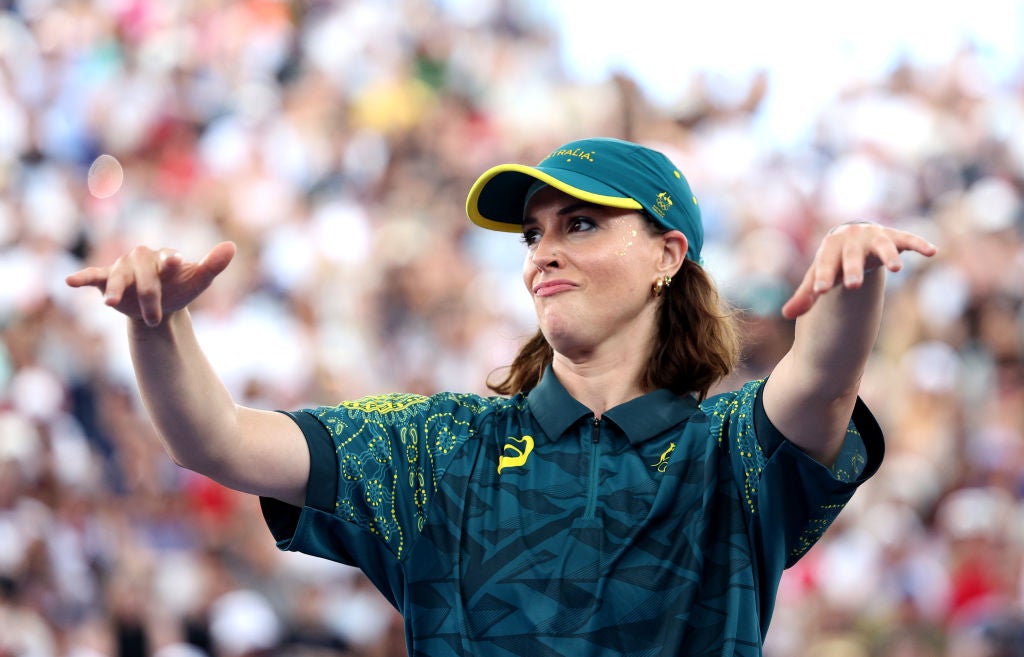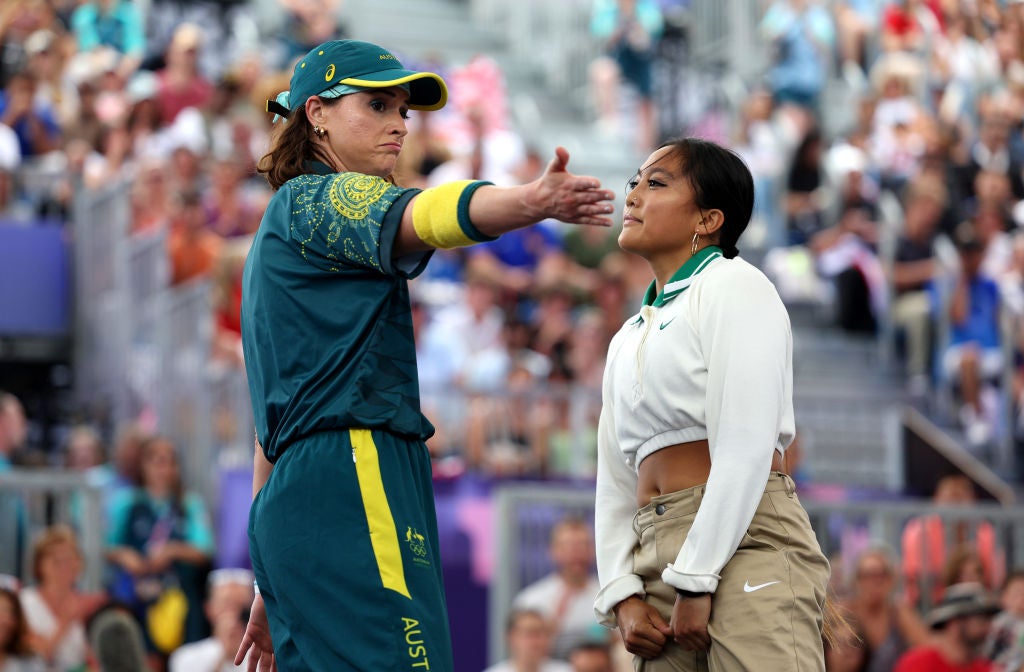“Raygun,” the 36-year-old university lecturer whose moves at the first breakdancing competition at the Olympics went viral on social media, has hit back at critics of her “art.”
The Australian – real name Rachael Gunn – did not receive a single point from the judges and was eliminated in the preliminary round after losing all three of her fights.
Raygun’s performance stunned Olympic fans and officials alike—her routine included a move that appeared to make her thrash around on the floor, which instantly became a meme.
Raygun wore the Australian team’s tracksuit and cap instead of the typical breakdancing and street clothes. She said she couldn’t keep up with her younger rivals athletically and so she tried to be “new, different and creative”.
Breaking was widely ridiculed when it made its Olympic debut as the only new sport on the Paris 2024 program. B-Girl Ami – Ami Yuasa from Japan – won the first gold medal.
It was Raygun who stole the show, however. A university lecturer with a PhD in dance, gender politics and the dynamics between theoretical and practical methods, she was Australia’s first Olympic breakdancing qualifier after winning the QMS Oceania Championships in Sydney.


She said competing in the Olympics was “something I never expected” after only starting the sport in her mid-20s.
“All of my moves are original,” Raygun said of her performance. “Creativity is really important to me. I go out there and show my artistic ability.”
“Sometimes it appeals to the jury and sometimes it doesn’t. I do my thing and it represents art. That’s what it’s about.”
“I wanted to come here and do something new, different and creative – that’s my strength, my creativity.
“I never intended to beat these girls at what they do best: the dynamics and power moves. That’s why I wanted to move differently, to be artistic and creative, because how many chances do you get in life to do something like that on an international stage.
“I was always the outsider and wanted to make a difference in a different way.”
Breaking will not compete at the 2028 Los Angeles Olympics, but Raygun defended its participation in the 2024 Paris Games, saying it should be considered for future Games.
“What is an Olympic sport? It’s so broad here… what are the similarities between dressage and synchronized swimming and the 100-meter sprint and the pentathlon,” Raygun said.
“Breaking is clearly a sporting discipline and requires a high level of dedication in many ways. I think it meets those criteria. And it really brings a new level of excitement.”
Raygun was supported by Australia’s Chef de Mission, Anna Meares, who described the criticism of the breakdancer as misogynistic.
“I love Rachael and I think what happened on social media with trolls and keyboard warriors and that those comments got airtime was really disappointing,” Meares said.
“Raygun is an absolutely beloved member of this Olympic team. She has represented the Olympic team and the Olympic spirit with great enthusiasm.
“And I love her courage. I love her character and I’m very disappointed for her that she was attacked like that.
“In 2008, she was locked in a room crying because she was the only woman playing a male-dominated sport. It took a lot of courage for her to keep going and fight for her chance to play the sport she loved.
“This has earned her the Olympic qualification for here in Paris. She is the best breakdancer we have for Australia.
“If you look at history, what we as athletes have had to endure in terms of criticism, denigration, condemnation and simple comments like ‘they shouldn’t be there.'”




